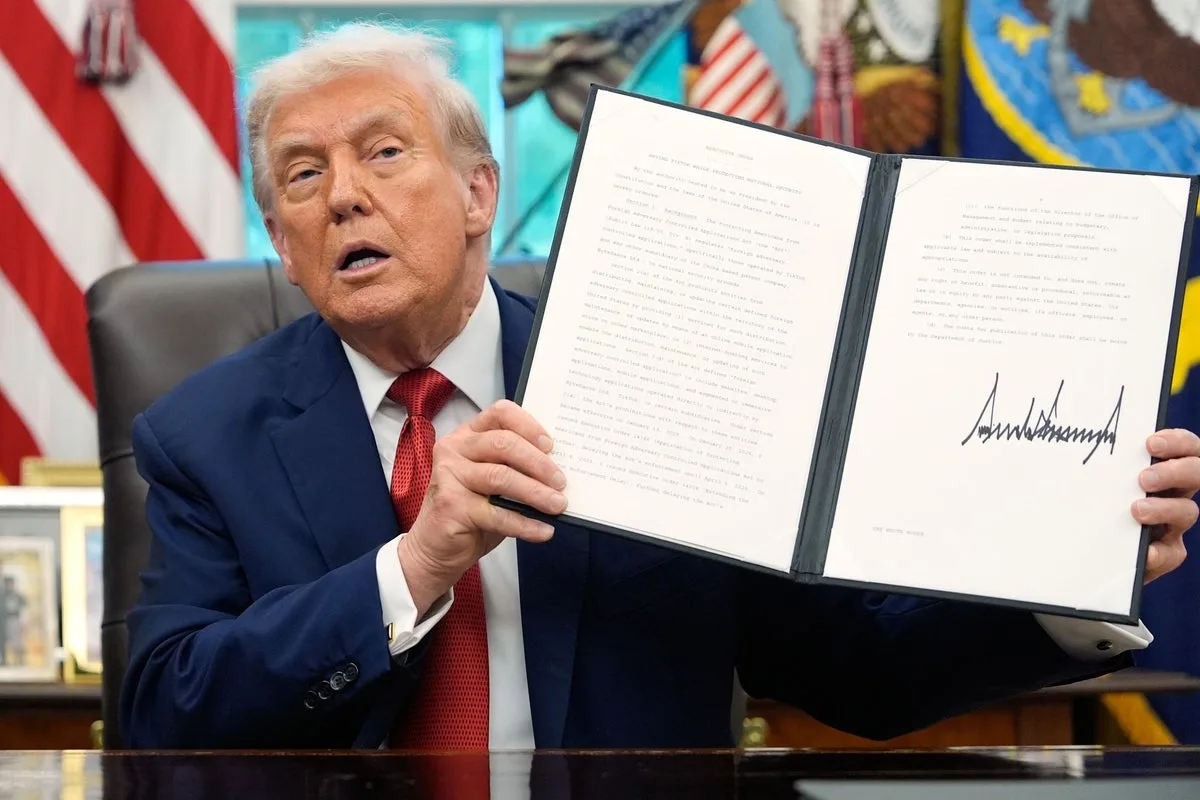September 29, 2025
Donald Trump signed an order mandating TikTok’s China sale to a US group, joking he’d make the algorithm “100% MAGA,” sparking debate on tech and politics.

Former US President Donald Trump signed a high-profile order requiring the sale of TikTok’s US operations to an American-controlled group, making a headline-grabbing quip that he would make the platform’s algorithm “100% MAGA.” The remark quickly drew global media attention and ignited discussions on the intersection of politics, technology, and social media influence.
TikTok, owned by China-based ByteDance, has faced scrutiny from US lawmakers for years, amid concerns that user data could be accessed by the Chinese government. The order pushes for divestment of TikTok’s US business to a domestic company, aimed at safeguarding national security while allowing continued operations in the United States.
Trump’s humorous comment, while lighthearted, underscores the highly politicized environment surrounding tech platforms in the US. Supporters applauded the quip as symbolic of Trump’s commitment to American interests, while critics argued that such statements blur the line between governance and political messaging.
The order comes against a backdrop of escalating tensions between the US and China in technology and data security. TikTok has become a focal point in this rivalry, alongside other Chinese apps facing regulatory scrutiny in the United States. Experts note that divesting TikTok’s US business is not only a security measure but also a signal of America’s broader approach to Chinese tech influence.
Legal analysts highlight the complexities of the sale. Ensuring compliance with US law, maintaining operational continuity for TikTok, and safeguarding data privacy are all key factors in the transaction. The US government has emphasized that this is a strategic move to reduce exposure to foreign influence while avoiding disruption to the platform’s millions of American users.
Beyond the sale itself, the “100% MAGA” comment drew attention to the broader influence of social media algorithms on political discourse. TikTok’s recommendation engine has been scrutinized for its role in shaping content consumption patterns, influencing trends, and even affecting political narratives. Trump’s joke brings into focus the concerns about algorithmic manipulation and the potential for partisan bias in social media feeds.
Civil liberties groups expressed concern that political interference in tech platforms could set dangerous precedents. They argued that algorithms should remain neutral, and jokes aside, government pressure on content or operations could threaten free expression and platform integrity.
The sale order also prompted responses from China. Beijing criticized the move, calling it an unfair restriction on Chinese technology companies. Analysts warn that the geopolitical implications could extend beyond TikTok, influencing other cross-border tech transactions and shaping global tech policy.
Meanwhile, TikTok users and content creators watched closely as the deal unfolds. The platform’s appeal to younger audiences, particularly Gen Z, means any disruption could impact content trends, influencer partnerships, and user engagement. Ensuring a smooth transition to a US-controlled company is therefore critical for business continuity.
Trump’s quip highlights the unusual interplay between politics, social media, and regulatory decisions. While the joke provided levity, it also sparked serious debate about the influence of former presidents, political figures, and government policies on private tech companies. The situation exemplifies how tech, politics, and media can converge in ways that affect global business, public perception, and national security.
As negotiations and regulatory oversight continue, TikTok’s future in the US will be closely monitored by policymakers, investors, and users. The outcome may set a precedent for how other foreign-owned digital platforms operate in the US, balancing security concerns with innovation, free expression, and commercial interests.